Jeep Renegade vs Suzuki Ignis - Differences and prices compared
Compare performance (240 HP vs 83 HP), boot space and price (26700 £ vs 15600 £) at a glance. Find out which car is the better choice for you – Jeep Renegade or Suzuki Ignis?
Costs and Efficiency:
When it comes to price and running costs, the biggest differences usually appear. This is often where you see which car fits your budget better in the long run.
Suzuki Ignis has a significantly advantage in terms of price – it starts at 15600 £, while the Jeep Renegade costs 26700 £. That’s a price difference of around 11049 £.
Fuel consumption also shows a difference: Jeep Renegade manages with 2.10 L and is therefore convincingly more efficient than the Suzuki Ignis with 4.90 L. The difference is about 2.80 L per 100 km.
Engine and Performance:
Power, torque and acceleration say a lot about how a car feels on the road. This is where you see which model delivers more driving dynamics.
When it comes to engine power, the Jeep Renegade has a decisively edge – offering 240 HP compared to 83 HP. That’s roughly 157 HP more horsepower.
In acceleration from 0 to 100 km/h, the Jeep Renegade is significantly quicker – completing the sprint in 7.10 s, while the Suzuki Ignis takes 12.70 s. That’s about 5.60 s faster.
In terms of top speed, the Jeep Renegade performs to a small extent better – reaching 199 km/h, while the Suzuki Ignis tops out at 165 km/h. The difference is around 34 km/h.
There’s also a difference in torque: Jeep Renegade pulls decisively stronger with 240 Nm compared to 107 Nm. That’s about 133 Nm difference.
Space and Everyday Use:
Beyond pure performance, interior space and usability matter most in daily life. This is where you see which car is more practical and versatile.
Both vehicles offer seating for 5 people.
In curb weight, Suzuki Ignis is significantly lighter – 935 kg compared to 1420 kg. The difference is around 485 kg.
In terms of boot space, the Jeep Renegade offers evident more room – 351 L compared to 267 L. That’s a difference of about 84 L.
In maximum load capacity, the Jeep Renegade performs to a small extent better – up to 1297 L, which is about 197 L more than the Suzuki Ignis.
When it comes to payload, Jeep Renegade noticeable takes the win – 570 kg compared to 395 kg. That’s a difference of about 175 kg.
Who comes out on top?
Overall, the Jeep Renegade shows itself to be leaves the rival little chance and secures the title of DriveDuel Champion.
It convinces with the more balanced overall package and proves to be the more versatile choice for everyday use.
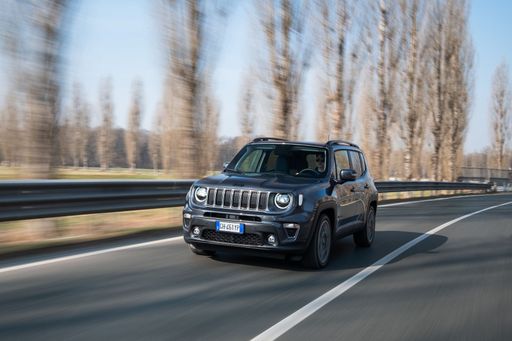
Jeep Renegade
Costs and Consumption
View detailed analysis
Engine and Performance
View detailed analysis
Dimensions and Body
View detailed analysis
Jeep Renegade
The Jeep Renegade wears its chunky, boxy looks like a badge of character, blending genuine off-road swagger with city-friendly manners so it feels at home on a muddy trail or a tight urban lane. Inside you'll find a surprisingly practical cabin with rugged touches and clever storage, making it a sensible choice for buyers who want a compact SUV with personality rather than just another anonymous crossover.
details
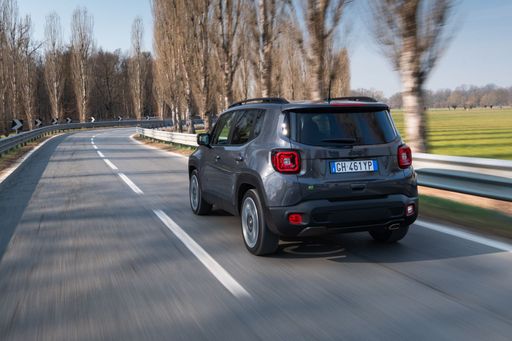
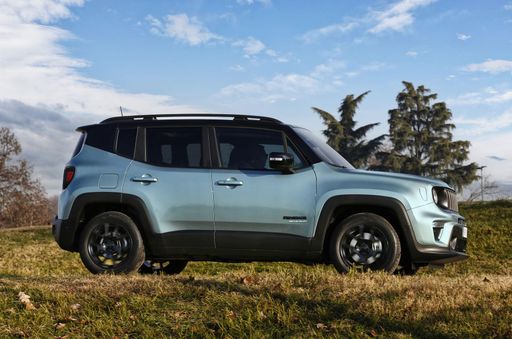
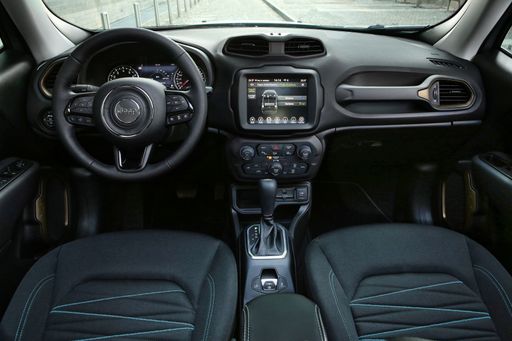

Suzuki Ignis
The Suzuki Ignis is a cheeky compact crossover that turns city chores into cheerful adventures, with chunky styling and a surprisingly practical cabin. It won't pretend to be a sports car, but its nimble manners, low running costs and ample personality make it an ideal pick for urban buyers who want fun without pretension.
details
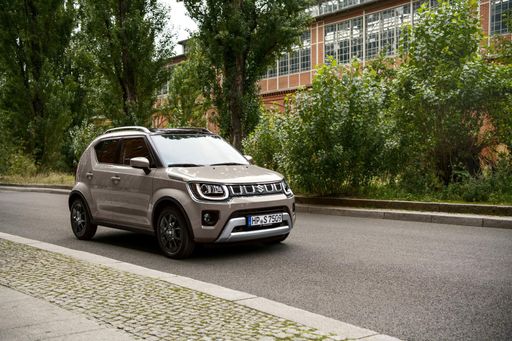
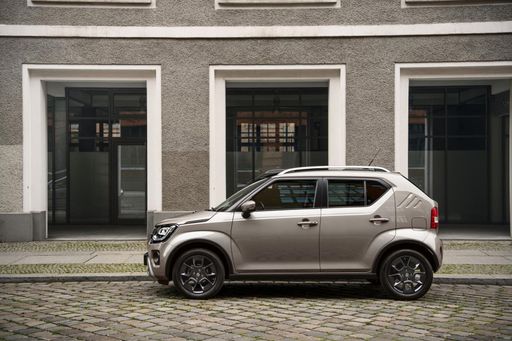
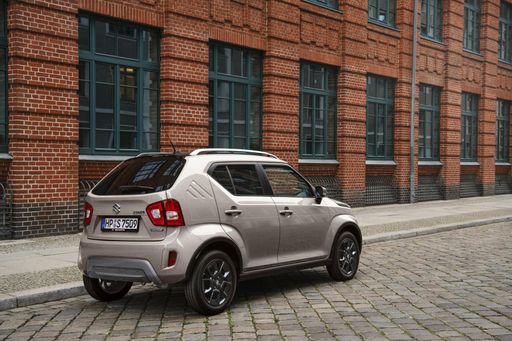
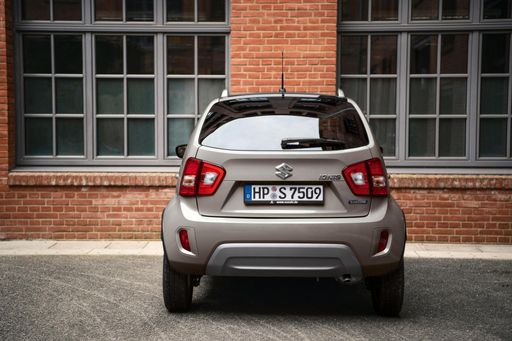

|

|
|
|
|
Costs and Consumption |
|
|---|---|
|
Price
26700 - 39200 £
|
Price
15600 - 19500 £
|
|
Consumption L/100km
2.1 - 5.5 L
|
Consumption L/100km
4.9 - 5.4 L
|
|
Consumption kWh/100km
-
|
Consumption kWh/100km
-
|
|
Electric Range
36 km
|
Electric Range
-
|
|
Battery Capacity
-
|
Battery Capacity
-
|
|
co2
48 - 125 g/km
|
co2
110 - 122 g/km
|
|
Fuel tank capacity
36 - 48 L
|
Fuel tank capacity
30 - 32 L
|
Dimensions and Body |
|
|---|---|
|
Body Type
SUV
|
Body Type
SUV
|
|
Seats
5
|
Seats
4 - 5
|
|
Doors
5
|
Doors
5
|
|
Curb weight
1420 - 1770 kg
|
Curb weight
935 - 995 kg
|
|
Trunk capacity
330 - 351 L
|
Trunk capacity
204 - 267 L
|
|
Length
4236 mm
|
Length
3700 mm
|
|
Width
1805 mm
|
Width
1690 mm
|
|
Height
1684 - 1718 mm
|
Height
1605 mm
|
|
Max trunk capacity
1277 - 1297 L
|
Max trunk capacity
1086 - 1100 L
|
|
Payload
545 - 570 kg
|
Payload
335 - 395 kg
|
Engine and Performance |
|
|---|---|
|
Engine Type
Petrol MHEV, Plugin Hybrid
|
Engine Type
Petrol MHEV
|
|
Transmission
Automatic
|
Transmission
Manuel, Automatic
|
|
Transmission Detail
Dual-Clutch Automatic, Automatic Gearbox
|
Transmission Detail
Manual Gearbox, CVT
|
|
Drive Type
Front-Wheel Drive, All-Wheel Drive
|
Drive Type
Front-Wheel Drive, All-Wheel Drive
|
|
Power HP
130 - 240 HP
|
Power HP
83 HP
|
|
Acceleration 0-100km/h
7.1 - 9.7 s
|
Acceleration 0-100km/h
12.7 - 12.8 s
|
|
Max Speed
191 - 199 km/h
|
Max Speed
155 - 165 km/h
|
|
Torque
240 Nm
|
Torque
107 Nm
|
|
Number of Cylinders
4
|
Number of Cylinders
4
|
|
Power kW
96 - 177 kW
|
Power kW
61 kW
|
|
Engine capacity
1332 - 1469 cm3
|
Engine capacity
1197 cm3
|
General |
|
|---|---|
|
Model Year
2024
|
Model Year
2020
|
|
CO2 Efficiency Class
D, B
|
CO2 Efficiency Class
C, D
|
|
Brand
Jeep
|
Brand
Suzuki
|
What drivetrain options does the Jeep Renegade have?
Available configurations include Front-Wheel Drive or All-Wheel Drive.
The prices and data displayed are estimates based on German list prices and may vary by country. This information is not legally binding.
